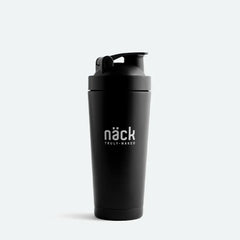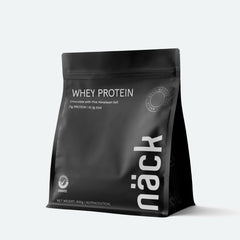What is the first thing that comes to your mind about protein powders? If you immediately associate it with bodybuilders or athletes, this one’s for you.
Why Protein Powder Is Not Just For Gym Regulars
Protein is very closely associated with mornings at the gym because protein supplements play such an important role in Muscle Protein Synthesis – the process that facilitates muscle growth. However, muscle growth is only one aspect covered by the broad protein benefit spectrum.
Protein is a necessity for a healthy immune system and is required for organs like your heart, brain, and skin to function properly. In addition, it ensures the maintenance of the muscle strength you already have as well as contributes to metabolism and satiety making protein supplements beneficial for everyone, not just athletes.
Before we get into busting the myths surrounding this misunderstood macronutrient, it might be worth it to get a refresher on what protein actually is.
Let’s go back to 6th-grade biology class for a quick second – our bodies need a balance of the three macronutrients, Protein, Carbohydrates, and Fat, to function properly. As the name suggests, these macronutrients are needed in large quantities in order to produce energy for daily functioning. Micronutrients, on the other hand, are nutrients your body needs in smaller quantities to support your overall health, think vitamins and minerals.
Protein is made up of amino acids which are the building blocks of the muscle tissues in our body – think of our muscles as the house and amino acids as the bricks. But our bodies use amino acids for a lot more than just maintaining muscle mass. Amino acids maintain energy levels, build and repair tissue, produce enzymes and hormones, even maintain hair, nail, and skin health.
Amino acids can be classified as either ‘ non-essential’, meaning that they can be synthesized from other amino acids, or ‘ essential’, meaning that we must obtain them from our diet. There are 9 essential amino acids, namely – histidine, isoleucine, lysine, leucine, methionine, threonine, phenylamine, tryptophan, and valine. If they all are present in the protein source you are consuming, in adequate quantities, it is called a complete protein.

The Value Of Protein In The Average Person’s Diet
Protein provides our body with the same energy density as carbohydrates do. However, our bodies do not store proteins in the same way it stores carbohydrates and fats, so it has no reservoir to draw from when we’re running low.
What does this mean? It means that you need to supplement and add to this reservoir by consuming protein every day.
There are differing opinions about just how much protein you need each day. This is due in part to the number of things that affect how much protein your body needs – the amount of energy your body uses, your age, sex, body weight, activity levels, health conditions, and a number of other factors.
The required intake of this macronutrient for an average human is 0.8 grams of protein per kilogram of their body weight, and if you work out, are pregnant, or post-pregnancy it is recommended to increase your protein intake to 1.2 grams per kilogram of body weight a day as per the recommended daily allowance.
Much like any other essential nutrient, when one doesn’t receive the required proteins in the body, it can hamper one’s health and in serious cases, lead to liver and kidney issues.
The first few signs of protein deficiency are brittle nails, hair thinning, discoloration of hair, redness, or patches of depigmentation.
On a side note, if you can achieve this nutrient intake naturally through your diet then you don’t need a protein supplement to fill nutrition gaps. However, if you are aiming to achieve a certain health goal such as improving body composition, reducing body fat, or increasing muscle strength, supplementation with protein can support you.
Further, if you adhere to a vegetarian a vegan diet, supplementation can be of high importance.
Even if many plant-based sources like quinoa, legumes, and whole grains are good sources of protein, most of them do not provide a complete amino acid profile on their own, or you need to consume a very high amount of them to reach your required intake.
The best way to make sure you’re getting the full spectrum of protein your body needs is to combine a few different sources.
Our Plant Protein Powder combines yellow peas and rice to give you a complete essential amino acid profile. Our formulation is 100% vegan and unflavored so you can get your creative cap on and go berserk experimenting!














